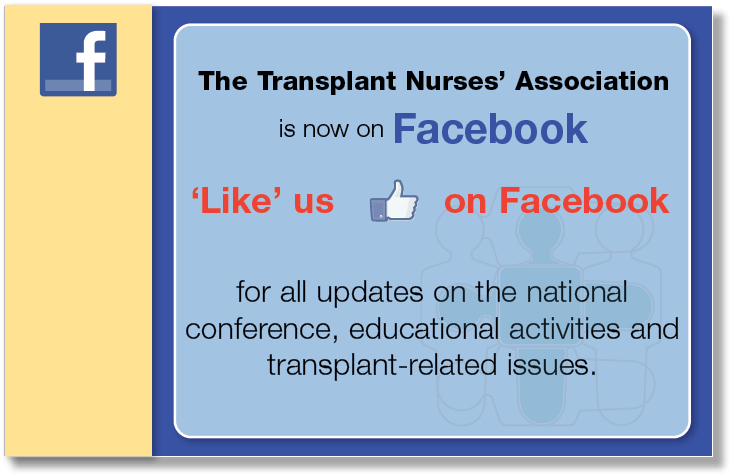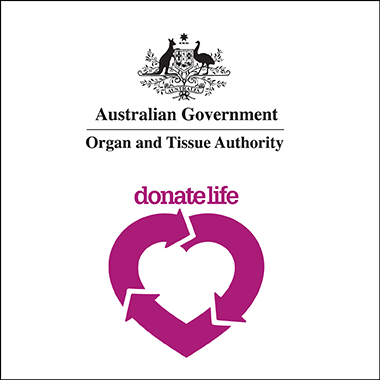Volume 29 Number 2
Confronting the crisis: transplantation during the COVID-19 pandemic
Elyn Montgomery
For referencing Montgomery E. Confronting the crisis: transplantation during the COVID-19 pandemic. Transplant Journal of Australasia 2020; 29(2):3-4.
DOI https://doi.org/10.33235/tja.29.2.3-4

As I commence my journey as editor of the TJA, I would like to take this opportunity to thank Myra Serrano for her invaluable contribution as editor. Myra has worked diligently over the years. Under her leadership, the TJA has progressed into a valuable resource, both locally and internationally, for the transplant community. Myra has been and continues to be an unwavering support to me in my transition into the role. I only hope I can continue the high quality standard that Myra has set over the years.
Secondly, thank you to the associate editor, Editorial Board, and the TNA National Executive for their warm welcome and ongoing support as I navigate my way in this new role.
It is undoubtedly a challenging year for everyone. As we contend with the impact of the coronavirus pandemic throughout Australia and across the world, we continue to endure novel and unforeseen challenges, from new ways of living, to confronting workplace dilemmas. Nurses are playing a crucial role on the frontline of our health systems. We have seen nurses rapidly upskilling to critical areas, contending with inadequate supplies of PPE, and managing unprecedented workloads.
As the healthcare professionals in closest contact with both patients and their families, nurses have been involved in increasingly complex moral decision-making while navigating the challenges of maintaining physical distancing and isolation.
On top of everything, recently in Victoria and across the world, we have seen a number of healthcare workers infected with coronavirus. This not only puts strain on the healthcare system, but also on the ongoing physical and mental wellbeing of our frontline workers.
While the renewed appreciation of nurses and healthcare professionals seen in the media and wider community is encouraging, it is important to acknowledge the enduring effect of the pandemic and ensure our colleagues receive the continuing support they need to keep coming to work every day. It is paramount that the physical and mental wellbeing of our healthcare professionals is one of the highest priorities for us as a country.
This edition explores a number of the challenges faced by our donation and transplantation community during the coronavirus pandemic. What stands out is the resilience, tenacity and ability to work together during this time of hardship and how the lessons learnt during the pandemic are being used to inform future practice.
The teams from the NSW Organ and Tissue Donations Service, the St Vincent’s Hospital heart and lung transplant unit, and the Australian national liver transplant unit (ANLTU) have collaborated on an article exploring their combined experience of the coronavirus pandemic. The article discusses the unique challenges and strategies that were implemented as they continued to provide a donation and transplant service to the state of NSW. It is encouraging to see not only the adaptability and flexibility of the teams but also the positive changes that have been implemented for the long-term.
Many of our patients have previously battled through significant health-related adversity and are in a good position to offer advice to the rest of us on coping during adverse circumstances. Transplant Australia CEO Chris Thomas presents an uplifting article on surviving the coronavirus lockdown and demonstrates the achievements of a number of transplant recipients as a result of the lockdown. Among the many accomplishments, I think we can all agree that the sourdough is particularly admirable!
Across the world, the significant impact of the pandemic has seen numerous countries engaged in the battle against coronavirus. During the first wave of the pandemic in early 2020, Spain was one of the most greatly affected countries across Europe. As a world leader in organ and tissue donation, a number of factors threatened Spain’s successful program. Sara Alcántara Carmona from the Hospital Universitario Puerta de Hierro Majadahonda, Madrid, Spain, presents the Spanish experience of coronavirus and the strategies employed to reinvigorate donation numbers following a coronavirus-related decline. It is a valuable opportunity to share practices and learn from each other as a number of units across the world strive to continue organ donation and transplantation services throughout the pandemic.
DonateLife Week, the annual national awareness campaign to promote organ and tissue donation in Australia, was held recently. Like every other aspect of our lives currently, DonateLife Week had to swiftly evolve to a coronavirus friendly model. In her article, Michelle Rowe from DonateLife NSW describes how the team rose to this challenge and continued an effective program highlighting the selfless gifts of donors and their families while encouraging key target audiences to register as organ donors. The innovative approach resulted in a successful campaign for all.
I would like to acknowledge the increased pandemic-related workplace demands for all of our authors and thank them for finding time to contribute to the journal. The ongoing success of the TJA is only possible with the contribution of our community. As we all carry on through the pandemic, our thoughts are with those colleagues, friends and family, particularly those in Victoria, that continue to be significantly impacted by the coronavirus crisis.
The TJA Editorial Board and I would like to invite all members to contribute to the journal. We gladly accept original research articles, reviews and clinical case reports. Further information including guidelines for authors are available here: https://transplantnurses.org.au/tja-journal/
As always, we will be happy to provide you with any assistance during the submission and publication process. If you have any queries or would like to discuss possible manuscript submission, please contact me at tjaeditor@transplantnurses.org.au


Author(s)
Elyn Montgomery
Email: tjaeditor@transplantnurses.org.au



